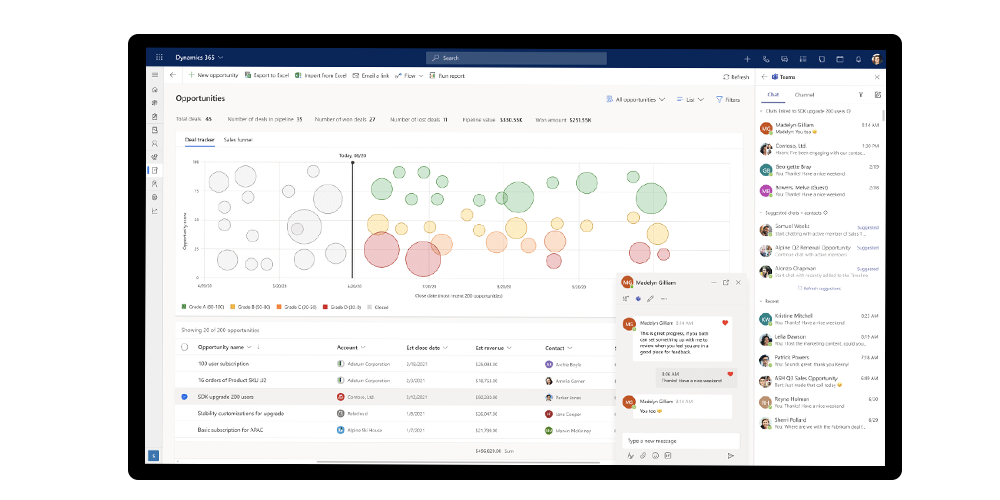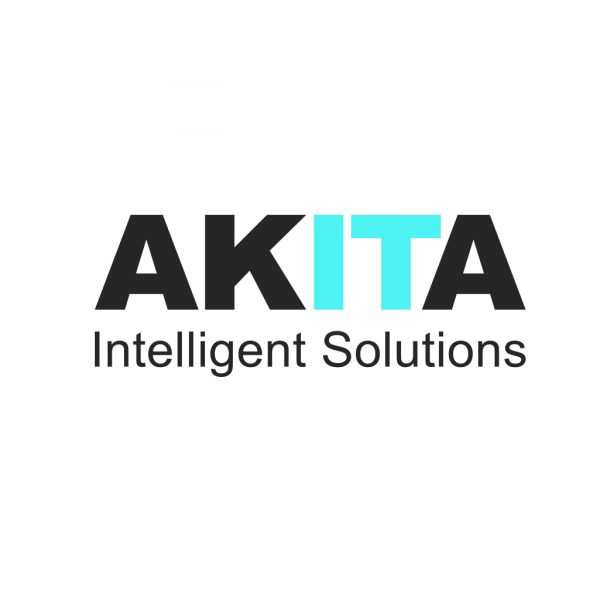Microsoft Dynamics 365 Sales is a must-have for businesses looking to increase sales conversions and improve customer management.
If you plan on deploying it to your sales team, there are two types of licences available: Dynamics 365 Sales Professional and Dynamics 365 Sales Enterprise.
While both licences offer access to the core Microsoft Dynamics 365 Sales product, they do provide access to different features suitable for different kinds of businesses. We’ve covered their differences and shared capabilities in the blog below.
Differences between Dynamics 365 Sales Professional and Dynamics 365 Sales Enterprise
Capabilities
As might be expected, Dynamics 365 Sales Enterprise offers more advanced sales capabilities and is designed for businesses or sales professionals with more complex requirements. This includes features such as email intelligence (assists in detecting buying signals for use in high-volume sales), forecasting, competitor management, and target and territory management (for large or geographically spread sales operations).

Dynamics 365 Sales Professional on the other hand provides more core sales CRM functionality offering. While no less a professional solution for managing leads, opportunities, accounts and contacts, it’s a better route for businesses with a more straightforward sales process or that operates with a smaller sales team.
Pricing
Due to the additional features it carries, Sales Enterprise is more expensive compared to Sales Professional. You will have to pay £71.60 per user per month for use of Sales Enterprise, compared to £49 per user per month to use Sales Professional.
Licence rules
Sales Enterprise and Sales Professional can only be mixed at the tenant level. Once you pass that level, you can't deploy both of these app modules on the same instance. You will have to decide whether to licence users with Sales Enterprise or Sales Professional.
When it comes to Dynamics 365 on-premise and cloud, only Sale Enterprise licences are granted dual usage rights. Sales Professional licences are only available for cloud deployment.
Lastly, Sales Enterprise can be licensed by a device or named user, while Sales Professional is only licensed by a named user.
Sales Hub
While Dynamics 365 Sales is device responsive, the Sales Hub app offers a mobile-friendly view of Dynamics 365 information that sales professionals may need to see on the go. This includes to-do lists, relevant account information for meetings that day, the ability to simply add and qualify leads on the go, and the ability to easily generate quotes.

The Sales Hub app is exclusive to Sales Enterprise licences.
Similarities of Dynamics 365 Sales Professional and Dynamics 365 Sales Enterprise
Number of users
Dynamics 365 Sales is a scalable cloud application. As a result, neither Sales Enterprise and Sales Professional have a user cap, so organisations can license as many users as required.
Shared entities
Both Sales licence types can create and manage the following entities and processes in Dynamic 365:
- Accounts
- Contacts
- Price lists
- Marketing lists
- Orders
- Campaigns
- Products
- Activities
- Dashboards
They can also consistently connect Dynamics 365 with other Microsoft tools such as Outlook, Excel, and Power BI.
Making the choice
The choice between Dynamics 365 Sales Professional and Dynamics 365 Sales Enterprise should come down to how you operate.
SME organisations that are centrally based will find that Sales Professional more than meets their sales CRM requirements.
In contrast, organisations with the larger, geographically separate sales team, or that conduct more field sales, could benefit from the additional features offered by Sales Enterprise.
As with any Microsoft 365 licence, there’s always the opportunity to upgrade. So choosing Sales Professional now doesn’t hold you back from upgrading in the future should your requirements evolve.
For more information or to view a demo of Microsoft Dynamics 365 Sales please visit our page:





